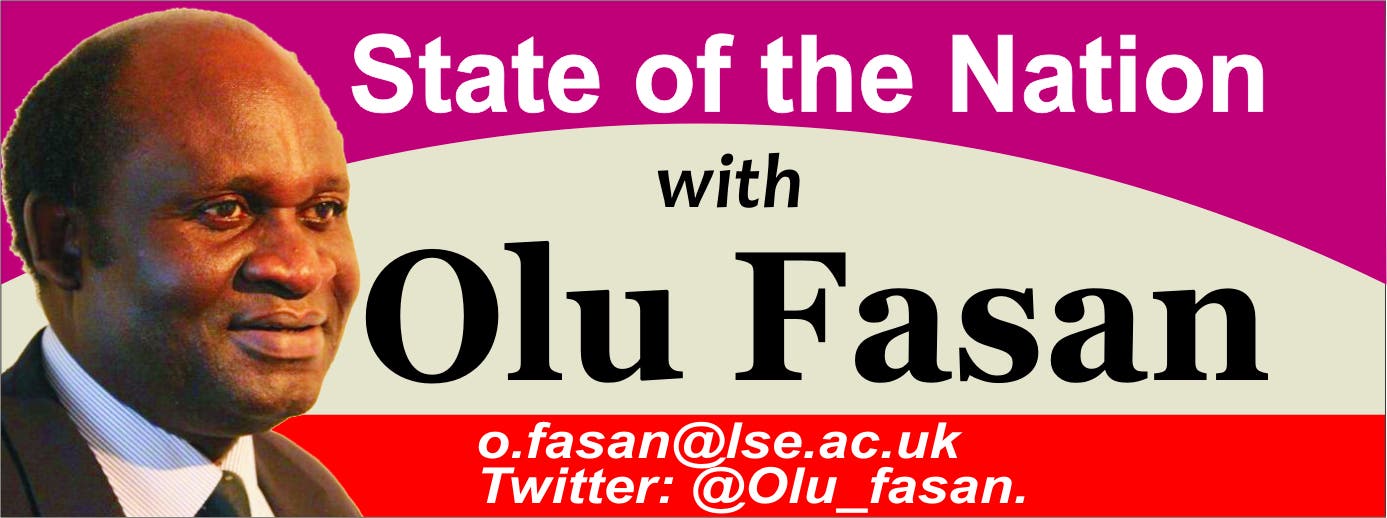TODAY, Nigeria is 60 years old as an independent state. Congratulations are in order! But truth must be told, there is little to celebrate! Over the past 60 years, Nigeria has had a tortured history, always teetering on the edge of a precipice. Today, it verges on state failure. Even scarier, without radical change, it faces existential schisms. So, what’s wrong?

The starting point is to look at Nigeria’s creation and evolution. Just as a child’s accidents of birth and upbringing can affect his or her future, a country’s circumstances of birth and evolution can shape its destiny. The past matters!
Yet, destiny is not immutable. Nations have changed the unfavourable trajectories of their destinies by taking radical actions in the right direction. The non-determinism of destiny gives me hope about Nigeria.
It means that, despite its adverse birth defects and evolution, Nigeria can, with a rebirth, achieve its full potential, and make a great leap forward. But before we come to how Nigeria can change the course of its tortured and tension-prone history, we should first remind ourselves of the determinants of that history.
There are three aspects of Nigeria’s past that have sowed the seeds of its disunity and instability. The first is the accidents of its birth in 1914; the second is the circumstances in which the British transferred power to Nigeria and granted it political independence in 1960; the third is the abandonment of the carefully negotiated political and constitutional settlement that ushered in independent Nigeria.
Let’s start with Nigeria’s creation. Readers already know the story, so I won’t dwell on it. But at its heart is the fact that Nigeria’s existence was not natural or organic; it was purely a human construct. When the British came to the territories that would later become Nigeria in the late 18th century, they met several ancient kingdoms that had existed for centuries.
But, in 1914, the British cobbled these disparate nations together to form a country. With absolutely no consultation or agreement, the nations were forced to live together in a country called “Nigeria” and to assume a new identity called “Nigerian”, which they didn’t have at birth!
In his book, There was a country, Professor Chinua Achebe said the ancient kingdoms, which could be independent nations in themselves, were “held together by a delicate, some say, artificial lattice.” Chief Obafemi Awolowo described the political construct as a “mere geographical expression” in the sense that, as the title of a speech by Professor Wole Soyinka says, it may be a “nation space”, but lacked “nationhood”!
Throughout the colonial period, between 1914 and 1960, the British played divide-and-rule politics. They aligned themselves strongly with the North and failed to forge a Nigerian identity in the people.
Of course, the nations themselves did not want to surrender their core identities to a Nigerian identity. As Achebe said: “The structure of the country was such that there was an inbuilt power struggle among the ethnic groups.”
But if the birth defects and Britain’s divide-and-rule politics sowed the seeds of ethnic rivalries in Nigeria, the circumstances in which the British transferred power to Nigerians entrenched a structural inequality that continues to make inter-ethnic unity and political stability almost impossible in this country.
When Britain decided to transfer power to Nigeria in 1960, it sent in a new governor-general, Sir James Robertson, from Sudan known “for his understanding of the Muslim way of life”, as one British MP put it.
As the widely publicised accounts of a British colonial official, Harold Smith, revealed, the elections were rigged in favour of the North. In Achebe’s words, the governor-general “threw his weight behind Abubakar Tafawa Balewa, who had been tapped to become Nigeria’s first prime minister.”
The North had vehemently opposed Nigeria’s independence. Yet, quoting Achebe again: “The British made certain on the eve of their departure that power went to that conservative element in the country that had played no real part in the struggle for independence.”
In his book Because I am Involved, Emeka Odumegwu-Ojukwu, the former Biafran leader, put it this way: “An impossible federation was created in which all cards were stacked in favour of one component of it.” That the North has ruled Nigeria for 45 of its 60 years of independence is one evidence of the structural imbalance.
Which brings us to the third factor. On July 15, 1960, Iain Macleod, Britain’s Secretary of State for the Colonies, presented the “Nigeria Independence Bill” for its second reading in the House of Commons. In his speech, he said that, given Nigeria’s “extraordinary” ethnic diversity, “it is not surprising that the political development it has chosen is that of a Federation in three regions, with each region self-governing in its own concerns.”
The logic of “self-governing” regions, each with its own constitution, has not changed – Nigeria remains a multi-ethnic country. Yet, the regional arrangement was terminated. First, the military replaced it with a unitary system.
Then, under civil rule, we have a “federal system”, in which power is centralised, while the federating units are fragmented into unviable state governments that are mere appendages of the federal government!
Truth is, any analysis of Nigeria’s disunity and instability must start with a recognition of the three elements of its creation and evolution – the birth defects, the structural imbalance created by the British and Nigeria’s subsequent departure from the regional arrangement.
But the ethnic nationalities are willing to live with the birth defects, with the fact that Nigeria was cobbled together by the British without consultation or agreement. What they will not accept, however, is a structural imbalance that “stacks all cards in favour of” one ethnic group or that denies each region the right of “self-governing in its own concerns” within a proper federation.
Put simply, Nigeria must be restructured and reborn to engender unity, stability and progress. Therein lies its future! Happy Independence Day anniversary, Nigeria. Your change will come!


